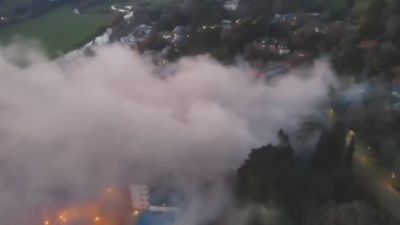Historians warn there could be many more bombs hidden under Exeter's streets

Historians are warning there could be many more undetonated bombs hiding under the streets of Exeter.
Hundreds of residents in the city are still unable to return home after military explosives experts sealed off and detonated a World War Two bomb on Saturday.
Between 1940 and 1942 Exeter was damaged by the German airforce in the 'Baedekar raids', targeting cities for their cultural and historical significance.
Dr Todd Gray, Honorary Research Fellow at the University of Exeter, said: "In a funny sort of way it has made me appreciate much more what it was like in Exeter during the 1940s.
"To have one bomb go off seems extraordinary, but Exeter had 7,000 bombs during the war. We view history through our own eyes, how we see it, and suddenly what happened in Exeter in 1942 is relevant to everybody in the city."
Dr Gray believes there could be many more unexploded devices lurking under the city's streets.
"The Government admitted in May 1942 that they hadn't yet looked in the suburbs," he said. "So I'm assuming this is one of those that got away. As Exeter develops more and more this is likely to come up again and again."
Dr Harry Bennett, Associate Professor at the University of Plymouth, said the weekend's events demonstrate the power of German bombs.
"This is exactly what the bomb was supposed to do in a sense," he said.
"Not only do we have the capacity for an immediate explosion, but also the Germans - and the Allies similarly - did use delayed action bombs that would just sit there quietly. And then when it goes off, as we've seen, the damage can be considerable. It gives you a real insight into what people in the 1940s had to go through."
Read more: